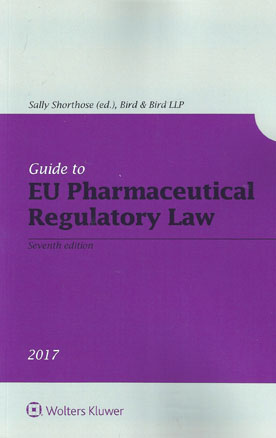
This new, 7th edition, Guide to EU Pharmaceutical Regulatory Law, which is updated annually to reflect the speed at which the rules and regulations change, provides a comprehensive and practical guide to, and analysis of, the current European Union (EU) Pharmaceutical Regulatory Regime.
In the EU and its Member States, as elsewhere, the marketing of pharmaceuticals has become subject to an increasingly complex web of legislation and regulation, resulting from the intense scrutiny necessary to ensure that such essential products are not only efficacious but also safe. This useful volume lays out this system with extraordinary clarity and logic.
Adopting a Europe-wide perspective on the law governing pharmaceuticals, expert authors from the law firm Bird & Bird LLP map the life cycle of a medicinal product or medical device from development to product launch and ongoing pharmacovigilance, offering comprehensive and unambiguous guidance at every stage.
What’s in this book:
Following an introductory overview focusing on the regulatory framework for pharmaceuticals in Europe – from its underlying rationales to the relevant committees and agencies – each of the fifteen incisive chapters examines a particular process or subject. Among the many topics and issues covered are the following:-
How this will help you:
Starting with an overview, this book primarily deals with how pharmaceutical products are brought to market from the conduct of clinical trials through amendments to marketing authorisations and abridged (generic) applications – the routes to obtaining a marketing authorisation covering special regimes such as the paediatric system and conditional marketing authorisations. Thus, this book serves as a guide for pharmaceutical lawyers and regulatory advisers, both in-house and in private practice, who need to understand the process of bringing a medicinal product or medical device to market and the continuing rights and obligations. In addition, this book also provides guidance on how ancillary subjects such as IP law, competition law, parallel imports and the regulation of homeopathic products influence pharmaceutical regime.